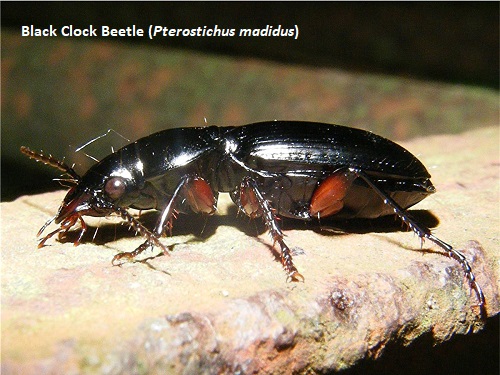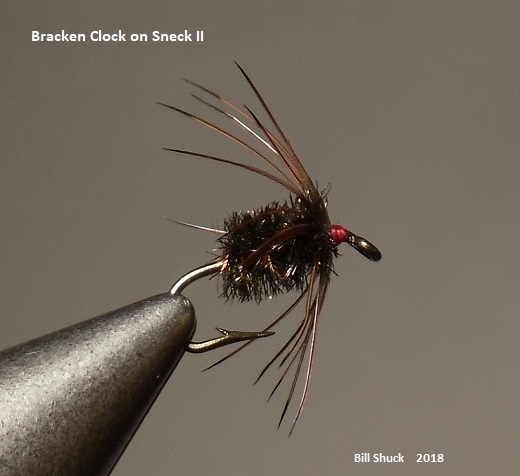The name translates literally from Old English as "Fern Beetle", and the fly does resemble a dark ground beetle that has dull red legs with dark tips that inhabits the heavy fern growths bordering many streams in the Westmorland/ Cambria uplands of England (see Black Clock beetle photo below). I suspect that this insect may have inspired the pattern.

I found multiple slightly differing recipes for this fly in the literature, but it most commonly includes:
Hook: Size 1 (I have used a vintage Mustad 3354 snell hook in Size #12)
Thread: Red (or orange) silk
Hackle: Cock pheasant; on page 204 of his book The North Country Fly, Robert Smith discusses the use of pheasant feathers in fly tying: "The larger feathers immediately below the neck, which are of a red color, with tips of metallic blue, are used for dressing the Bracken Clock."
Body: Two or three strands of peacock herl twisted with a long tag of tying thread and wrapped forward
My result looks like this:

